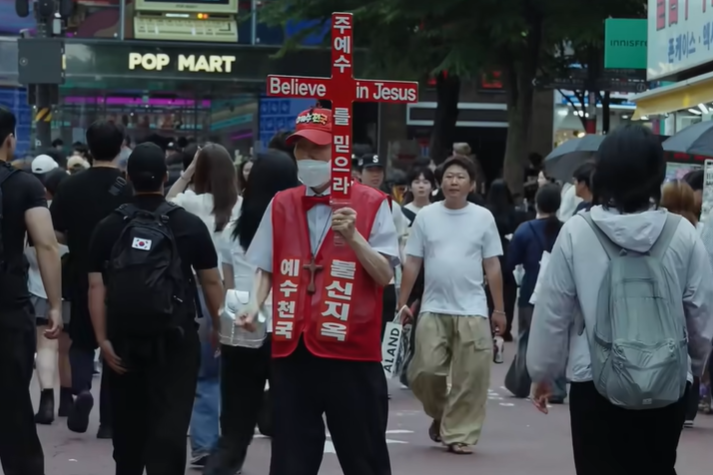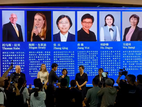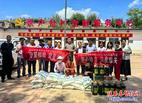On August 8, a popular Chinese content creator, Shipindao, with over eight million followers on the video platform Bilibili, released an investigative video about the Korean new religious movement Daesoon Jinrihoe. The video has garnered over eight million views, sparking heated discussions online. In its conclusion, the creator raised thought-provoking questions about religious regulation.
The video, lasting more than one and a half hours, documents how two members of the production team went undercover inside Daesoon Jinrihoe. After participating in activities, studying the group's teachings, and even making financial contributions, they exposed the process by which the group recruits new members. The video also featured messages from people who had previously been involved, many of whom reported significant financial losses.
In the latter half, the video presented interviews with former members, cult researchers, and exit counselors. Counselor Kim Joong-il, who once joined the controversial Shincheonji Church through his brother, explained the distinction between orthodox Christianity and heterodox groups. "Christianity teaches that God is love and desires human flourishing," he said. "But in heterodox groups, God is often portrayed as fearsome, with strict doctrines of karmic retribution—if you don't make contributions, you cannot receive God's salvation or grace."
Religious studies scholar Jung Yoon-seok elaborated further on the difference between heresies and cults. "Orthodox Christianity holds to core doctrines. A heretical group deviates from those doctrines, while a cult, beyond doctrinal issues, justifies socially unacceptable or criminal acts, violating human rights and disrupting public order," he explained.
Jung noted that the central teaching of Daesoon Jinrihoe is haewon sangsaeng, the belief that unresolved grievances of deceased ancestors cause illness, suffering, and misfortune among the living. Followers are taught that only by performing rituals and offerings to resolve ancestral resentment can human problems be solved. Jung concluded that such teachings are essentially a means of financial exploitation.
As to why heterodox and cult movements flourish in South Korea, Jung pointed to both historical and constitutional reasons. Korea's long history of subjugation by foreign powers has fostered a deep-seated yearning for a savior figure, he said. Moreover, Article 20 of the South Korean Constitution guarantees broad religious freedom, stating that the state shall not interfere in religious belief or practice. Intervention by authorities occurs only when groups violate laws or pose a serious threat to public order. This expansive protection, Jung argued, has made it nearly impossible to eradicate cults. Leaders of such groups often continue to live in comfort even after imprisonment, and some organizations remain active while their leaders are behind bars.
Groups like Shincheonji have also sought ties with politicians, law enforcement, and judiciary officials, Kim said, or encouraged followers to enter these sectors themselves, Jung added. As a result, society often remains silent when controversies arise, enabling such groups to expand further in a vicious cycle. Although President Lee Jae-myung announced a crackdown on Shincheonji in 2025, experts note that legal limitations make investigations extremely difficult.
In closing, Shipindao remarked that under South Korea's current legal framework, the term "cult" does not formally exist. But from another perspective, the situation reveals just how vital and challenging religious regulation is for any nation. "If the government intervenes, it risks accusations of infringing on religious freedom. But if it does nothing, proliferation is inevitable," the creator concluded.
On October 8, 2023, the Yanbian Civil Affairs Bureau in Jilin Province banned Daesoon Jinrihoe's activities in China, citing the group's unauthorized operations under the name of a social organization, which rendered it an illegal entity. In July 2025, the China Service Center for Scholarly Exchange (CSCSE) also revoked the accreditation of Daejin University, affiliated with Daesoon Jinrihoe, though the decision did not affect current students or graduates.












